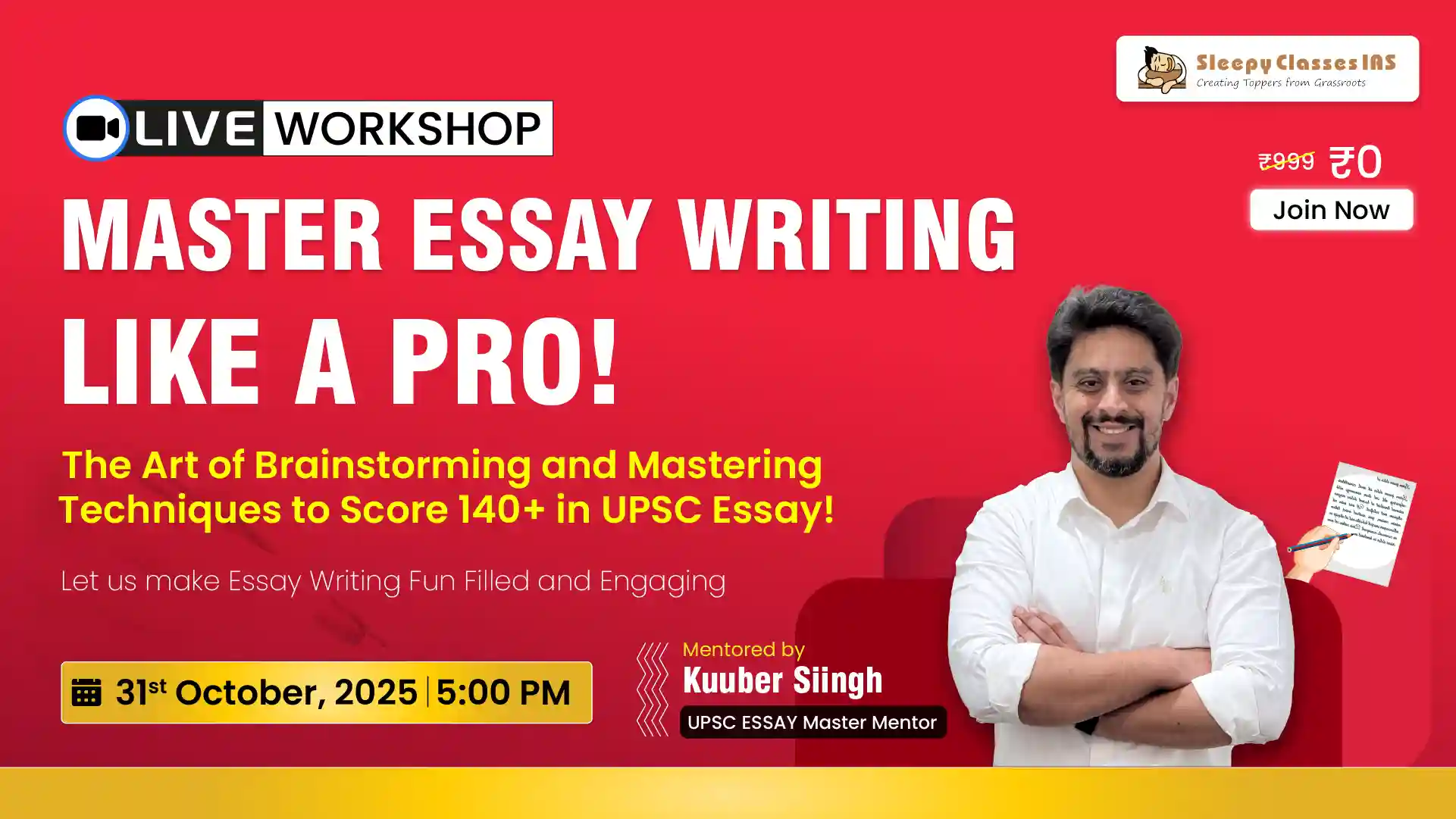As one of the most prestigious and challenging examinations in India, the UPSC exam requires a strategic and well-structured approach to preparation. One highly effective method for refining your preparation strategy is by leveraging previous year question papers. This article delves into how utilizing these papers can significantly enhance your chances of success in the UPSC Prelims Exam 2024.
Key Takeaways
- Previous year question papers offer invaluable insights into the exam pattern and frequently asked questions, helping you to better understand what to expect.
- Analyzing these papers can help identify high-yield topics and areas that require more focus, thereby optimizing your study plan.
- Practicing with these papers enhances time management skills, allowing you to allocate your time more efficiently during the actual exam.
- Simulating exam conditions with previous year papers can help build confidence and reduce exam anxiety.
- Regularly reviewing and analyzing your mistakes in these papers can improve your problem-solving skills and answer writing techniques.
Understanding the Role of Previous Year Question Papers
Previous year question papers are a crucial resource for anyone preparing for the UPSC exam. Using these papers helps you understand the UPSC exam pattern, identify important topics, assess the difficulty level, and improve time management skills.
Strategic Planning with Previous Year Papers
When preparing for the UPSC exam, strategic planning with previous year papers can be a game-changer. By setting realistic goals, you can break down your preparation into manageable chunks, ensuring steady progress. Time management techniques are crucial; practicing within the allotted time frame helps you get accustomed to the exam’s pace. Prioritizing high-yield topics, identified through past papers, allows you to focus on areas that are more likely to appear in the exam, maximizing your efficiency.
Setting Realistic Goals
Setting achievable targets is essential for maintaining motivation and tracking progress. Break down your study plan into daily, weekly, and monthly goals. This approach helps in maintaining a consistent study routine and avoids last-minute cramming.
Time Management Techniques
Effective time management is key to covering the vast UPSC syllabus. Allocate specific time slots for different subjects and stick to them. Use timers while practicing with previous year papers to simulate real exam conditions and improve your speed and accuracy.
Prioritizing High-Yield Topics
Identifying and focusing on high-yield topics can significantly boost your preparation. Analyze previous year papers to spot frequently asked questions and important themes. This targeted approach ensures that you are well-prepared for the most critical parts of the syllabus.
Leveraging previous year papers for strategic planning not only enhances your preparation but also builds confidence, making you better equipped to tackle the UPSC exam.
Effective Techniques for Practicing with Previous Year Papers
Simulating Exam Conditions
To maximize the benefits of practicing with previous year question papers, it’s crucial to replicate real exam conditions. This involves setting a timer and working in a quiet environment. Start with easier questions to gradually build your confidence and get accustomed to the exam format. This method helps in managing time effectively and reduces exam-day anxiety.
Analyzing Mistakes and Learning from Them
After completing a paper, thoroughly review your answers to identify mistakes. Understanding where you went wrong is essential for improvement. Make a note of recurring errors and focus on those areas in your subsequent study sessions. This practice not only helps in avoiding the same mistakes but also strengthens your overall preparation.
Integrating Current Affairs into Answers
Incorporating current affairs into your answers can significantly enhance their quality. Stay updated with the latest news and try to relate it to the topics covered in the question papers. This approach not only enriches your answers but also demonstrates a well-rounded understanding of the subject matter.
Solving previous year papers is an excellent strategy for exam preparation as it helps you understand the exam pattern, types of questions asked, and the level of difficulty. By integrating these techniques, you can make the most out of your practice sessions and improve your chances of success.
Maximizing Benefits from Previous Year Papers
Previous year question papers are a goldmine for UPSC aspirants. They offer a wealth of information that can significantly enhance your preparation strategy. By practicing with these papers, you can gain a deeper understanding of the exam pattern, improve your time management skills, and identify key areas that require more focus. Leveraging these resources effectively can make a substantial difference in your performance.
Leveraging Expert Guidance and Resources
Utilizing Coaching and Mentorship
Engaging with experienced mentors can significantly enhance your UPSC preparation. Expert guidance helps in understanding complex topics and provides personalized feedback on your progress. Many coaching institutes offer one-on-one mentorship programs, which can be invaluable for addressing individual weaknesses and strategizing effectively.
Accessing Comprehensive Study Materials
A wide array of study materials is available for UPSC aspirants, from comprehensive study materials to concise notes. These resources are designed to maximize learning in minimal time, making them ideal for quick reviews or in-depth study sessions. Online platforms often provide e-books, video lectures, and interactive quizzes, which can supplement your preparation and deepen your understanding of various subjects.
Participating in Interactive Learning Sessions
Interactive learning sessions, such as webinars and group discussions, offer a platform for candidates to interact with peers and experts. These sessions facilitate collaborative learning and provide opportunities to clarify doubts in real-time. Participating in such sessions can also help in staying updated with the latest trends and syllabus changes.
Leveraging expert guidance and resources can be a game-changer in your UPSC preparation, providing you with the tools and support needed to succeed.
Tracking Progress and Adjusting Strategies
Regular Self-Assessment
Regular self-assessment is crucial for UPSC preparation. It helps you gauge your progress and ensures you stay on track with your preparation goals. Utilize mock tests and previous year question papers to evaluate your performance. Identify areas of improvement and focus on them to enhance your overall readiness.
Identifying and Addressing Weaknesses
Identifying your weaknesses is the first step towards improvement. Analyze your performance in practice tests to pinpoint topics where you struggle. Create a targeted study plan to address these weak areas. This approach will help you build a strong foundation and boost your confidence.
Adapting Study Plans Based on Performance
Your study plan should be flexible and adaptable. Based on your performance analysis, adjust your study strategies to focus more on weak areas while maintaining strengths. This dynamic approach ensures that you are always improving and moving closer to your goal.
Consistent self-assessment and adaptation of study strategies are key to minimizing distractions in your study routine and achieving success in the UPSC exam.
Incorporating Previous Year Papers into a Holistic Study Plan
Integrating previous year question papers into your study plan is crucial for a well-rounded UPSC preparation. Balancing both static and dynamic syllabus elements ensures comprehensive coverage of the exam topics. By regularly practicing with these papers, you can effectively blend theoretical knowledge with current affairs, making your answers more relevant and impactful.
Incorporating previous year papers into your study plan can significantly enhance your UPSC preparation. By practicing with these papers, you can familiarize yourself with the exam pattern and identify key areas to focus on. For comprehensive resources and expert guidance, visit our website and start your journey towards success today.
Conclusion
In conclusion, leveraging previous year question papers is an indispensable strategy for maximizing your UPSC preparation. By practicing with these papers, you gain a deeper understanding of the exam pattern, improve your time management skills, and identify key areas that require more focus. Sleepy Classes enhances this preparation by offering comprehensive courses, expert guidance, and continuous assessments tailored to the dynamic nature of the UPSC exam. Their specialized programs, including intensive answer writing sessions and thematic framework discussions, provide aspirants with the tools needed to excel. By integrating these resources into your study routine, you can approach the UPSC exam with confidence and a well-rounded preparation strategy.
Frequently Asked Questions
How can previous year question papers help in UPSC preparation?
Previous year question papers are invaluable for understanding the exam pattern, identifying frequently asked topics, and assessing the difficulty level of questions. They provide insights into what to expect and help in strategic planning.
What is the best way to analyze previous year question papers?
The best way to analyze previous year question papers is to categorize questions by topics, identify patterns in the types of questions asked, and assess the difficulty level. This helps in understanding which areas require more focus.
How often should I practice with previous year question papers?
It’s recommended to practice with previous year question papers regularly. Incorporate them into your study routine weekly or bi-weekly to continually assess your progress and adapt your preparation strategy accordingly.
Can practicing previous year question papers reduce exam anxiety?
Yes, practicing previous year question papers can build confidence and reduce exam anxiety. Familiarity with the exam format and types of questions can make you feel more prepared and less anxious on the exam day.
Should I time myself while practicing previous year question papers?
Absolutely. Simulating exam conditions by timing yourself while practicing previous year question papers is crucial. It helps in improving time management skills and ensures that you can complete the exam within the allotted time.
How can I integrate current affairs into my answers using previous year question papers?
To integrate current affairs into your answers, stay updated with the latest news and events. Practice framing your answers by linking current affairs with static topics covered in previous year question papers. This demonstrates a well-rounded understanding of the subject matter.








